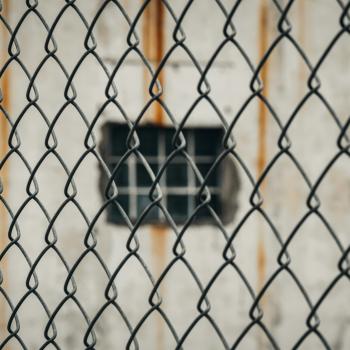One of my grandchildren is regularly bullied at school. Teachers step in when it is physical on the playground, but they are less likely to know about other kinds of bullying. Last week, for example, that grandchild dropped a keepsake bought while visiting us. Two boys saw it fall, and one of them grabbed it. They ran off saying "Finders keepers, losers weepers."
It's a small event, hardly a tragedy. But if you are a child with special needs, already having difficulty socially, it's worse than it appears to the rest of us. Had a teacher or school official been there, I'm sure he or she would have stepped in and made the boys return what they took. In fact, I doubt that this would have occurred in the presence of an authority figure of any kind. This was a small incident of typical schoolboy behavior.
Nevertheless, hearing about it I was angry, until I recalled that those boys had no idea of the pain they were causing. They were being naughty but nothing more. Then I was angry at the teachers who weren't there, and probably couldn't have been. That, too, went away as I thought more about what had happened.
But from hearing about it until now I have been in pain for my grandchild, wishing there were something I could do from this distance, but knowing that there was nothing anyone could do. My daughter is the child's mother, and there is little if anything that she could have done.
But the pain that she and I and Janice feel is real, pain for this beloved child who, though intelligent far beyond what age would prescribe, is tender, shy, and extremely vulnerable, much more than most people would see by looking. More than some with responsibility are willing to believe. We hurt with our child and worry about the child's future. Will these little events add up over time? If so, to what?
Given the community in which the two boys live, there's a very good chance that they will go to church Sunday. They will go to Sunday School and learn their lessons. They are probably good Mormon boys, so in Sacrament meeting they will take the bread and water of the Sacrament of the Lord's Supper, covenanting to remember the sacrifice of flesh and blood made by Jesus Christ on our behalf and witnessing "that they are willing to take upon them the name of thy Son" as followers of Christ, to "remember him, and keep his commandments" (Moroni 4:3). And if they think about what they are doing (unlikely at their age, but possible), they will mean it. What happened days ago will no longer be remembered — and if it is remembered it won't be remembered as particularly significant, a small moral failure, nothing more.
I wonder how often I am like those boys. How often have I done something that even on reflection seems to be, at best, a relatively inconsequential failing but that had repercussions greater than I would or could imagine? If the movement of life away from God is sin, how often have my sins been greater than I knew?
Had it not become a cliché, John Donne's poem "No Man Is an Island" would be a great poem, but even as a great poem it looks, as it were, in the wrong direction. It is true that "any man's death diminishes me." The bell does toll for me. But that is not the more important fact. The important fact is not that I am diminished when someone else dies, but that my misdeeds kill without my acknowledging it, usually without my even knowing it. I diminish the lives of others.
In The Gift of Death Jacques Derrida reminds us that we cannot escape responsibility for death, spiritual and physical. To live is to be involved in causing pain and suffering for others. That I didn't intend it and don't know about it isn't enough. My lack of knowledge, my inability to acknowledge, doesn't absolve me of responsibility (both as accountability and as response-ability). My conclusion, though not Derrida's, is that that is why we need a savior. Christianity promises a resolution to the impossible reality of responsibility.
But even with the resolution to the problem of sin offered by Jesus Christ (a resolution I do not fathom), he doesn't absolve us from the absolute requirement to do as little damage to others as we can. We exist in a lace tissue of relationships with other persons and with the larger world. Tugging here can cause a break right next to us, or it can snap a thread in the tissue some distance away. The breaks we create can happen immediately or they can occur only later when the weakness we created is weakened further by some other tug in the web. Every movement we make runs the danger of causing a break in the lace.
In such circumstances I must practice a Christian version of something like Jainism's ahimsa, nonviolence toward all that is, not just no intentional violence, but also no unintentional violence. There are those I may harm thinking "I didn't do any great harm to them," but not knowing the damage my seemingly minor act has caused. There are those I will harm with complete obliviousness. Derrida's point is right: I cannot avoid causing pain to others. Yet Jesus' point is also true and must be remembered: "See that you do not think one of these little ones not important enough for your concern" (Matt. 18:10, my translation). No man is an island, true. But every being is inexorably part of the lace of life and creation. Every other person is my grandchild. I am every grandchild's potential bully.
12/2/2022 9:09:21 PM





